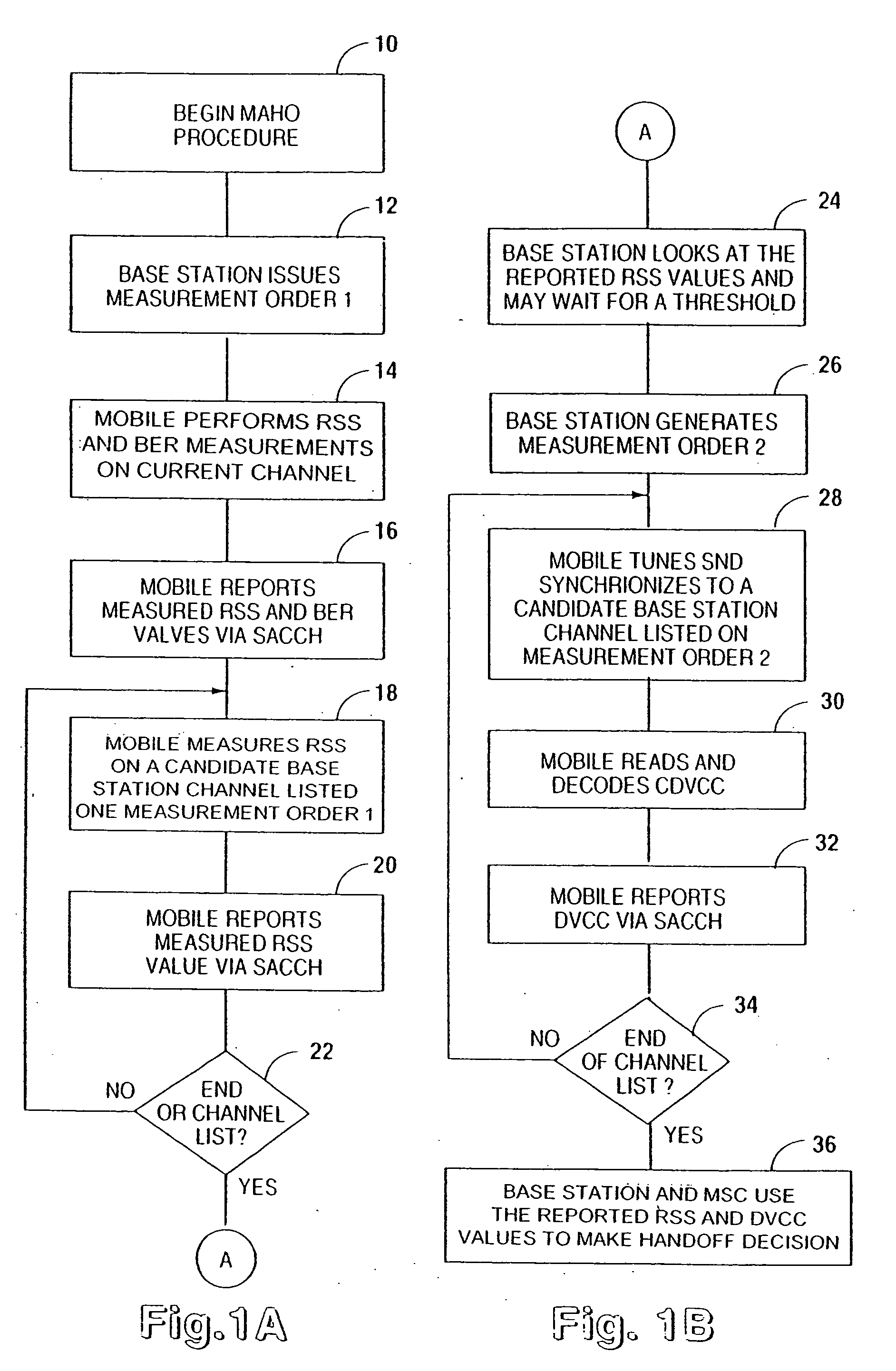Mobile assisted handoff system and method
a handoff system and mobile technology, applied in the field of digital cellular mobile radio communication systems, can solve problems such as serious drawbacks in system accuracy, and achieve the effect of improving the quality of handoff decision and reducing the probability of a dropped call
- Summary
- Abstract
- Description
- Claims
- Application Information
AI Technical Summary
Benefits of technology
Problems solved by technology
Method used
Image
Examples
Embodiment Construction
[0033] In a digital cellular mobile communication system such as is defined by the IS-136 standard, where a number of users are time division multiplexed (TDMA) into one channel, each mobile station on the channel transmits and receives in bursts corresponding to its allotted time slot FIG. 2 shows the TDMA frame format, and the base station to mobile station slot format for the IS-136 system.
[0034] In this format, every TDMA frame (40) supports up to three users, each using one pair of time slots, for full rate digital traffic channel operation. Each mobile station is assigned every third time slot, for example; slot 1 (41) and slot 4 (44), slot 2 (42) and slot 5 (45), or slot 3 (43) and slot 6 (46). Thus, each mobile station is idle for two time slots between its allotted pair of time slots. This idle period of 13.33 ms occurs once every half frame and is utilized in the present invention to facilitate mobile assisted handoff.
[0035]FIG. 2 also discloses the format of an individu...
PUM
 Login to View More
Login to View More Abstract
Description
Claims
Application Information
 Login to View More
Login to View More - R&D
- Intellectual Property
- Life Sciences
- Materials
- Tech Scout
- Unparalleled Data Quality
- Higher Quality Content
- 60% Fewer Hallucinations
Browse by: Latest US Patents, China's latest patents, Technical Efficacy Thesaurus, Application Domain, Technology Topic, Popular Technical Reports.
© 2025 PatSnap. All rights reserved.Legal|Privacy policy|Modern Slavery Act Transparency Statement|Sitemap|About US| Contact US: help@patsnap.com



